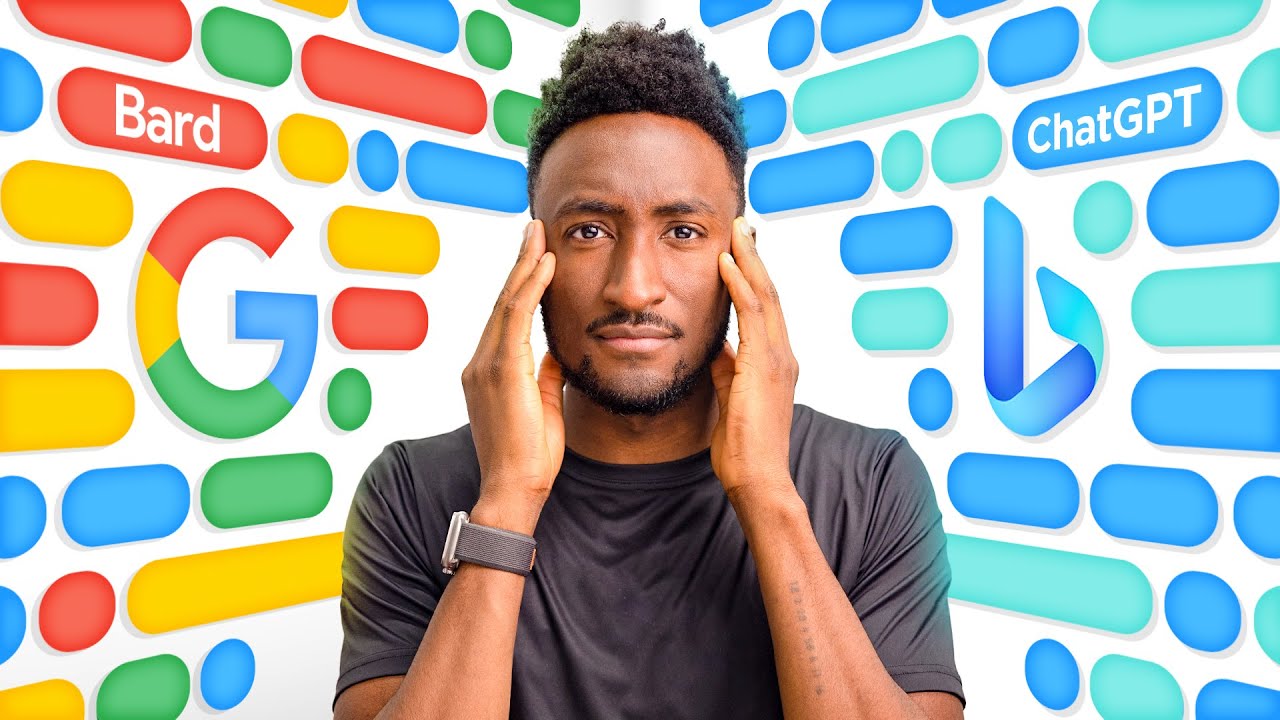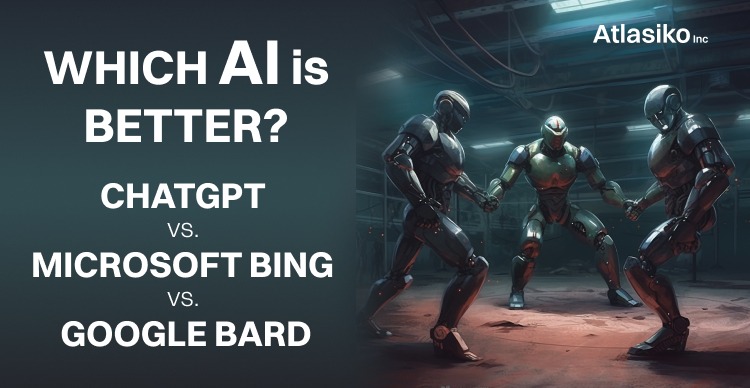If you're not already using at least one AI solution, you’re at risk to fall behind your business competitors who have already appreciated the benefits of this technology. AI is now proven to change lots of work processes and even day-to-day personal activities by speeding up complex tasks and bringing unique experiences. The newest AI chatbots can comprehend and generate responses that are sometimes pretty hard to tell from those of humans, opening up a wide range of possibilities in miscellaneous areas.
In recent months, the largest tech companies have been racing with each other to establish their domination in AI development. For now, among the leaders are mostly three main players – OpenAI with its revolutionary ChatGPT, Microsft with Bing, and Google Bard. Well, to add more technicalities, OpenAI is being backed by Microsoft, so the real competition is unsurprisingly between Microsoft and Google.
To actually assess the effort of all competitors, we can take a closer look at their AI solutions and decide which one is the best at its current state of development. If you follow our previous news about ChatGPT, Bing, or Google Bard, you already know the latest updates on these chatbots. Here we’ll compile the conclusions, opinions, and impressions from their use.
ChatGPT, Bing, and Google Bard are chatbots that all use AI language models to hold more human-like conversations while solving different tasks on requests. These solutions have been trained on large text datasets, enabling them to generate contextually relevant responses to a broad range of questions. They can be used individually or set up as plugins in a variety of other OSs, platforms, or software, such as customer service, language translation, personal assistance, and more.

The direct comparison of the three AI chatbots is rather complicated since they are still under development, and new features and capabilities are being added all the time. Nevertheless, many users have already had opportunities to experience Bing and Bard, even though many are still on a waiting list for access. ChatGPT has been around for everyone to use, so it’s not difficult to evaluate its performance. We've analyzed the available information to better understand the differences among these chatbots.
The field of natural language processing (NLP) has been revolutionized by advanced AI language models such as those that ChatGPT, Bing, and Google Bard use. Although each of these models has its unique abilities and attributes, they use different AI technologies.
ChatGPT, developed by OpenAI, is a large language model with 6 billion training parameters that can generate human-like text in response to a given prompt. It can perform tasks like language translation, question answering, and summarization. Furthermore, ChatGPT can generate text in various styles and tones, making it ideal for creative writing.
Bing by Microsoft uses AI-powered natural language processing to understand user queries and provide relevant search results. Bing can also perform other tasks such as providing weather forecasts, news updates, and sports scores. Additionally, it offers a variety of filters and settings to refine search results.
Unlike two other chatbots that rely on GPT-based technology, Google Bard uses a completely different technology powered by an extension of the in-house LaMDA. Although less advanced than its competitors, Google Bard uses a more casual style of language.
| Chat GPT | Google Bard | Bing | |
|---|---|---|---|
| Pricing and Accessibility | The original version of ChatGPT remains free to users, but an advanced version is available for $20/month. | Free for members of the community, although through a waitlist (they get access only after being accepted). | Accessible to users who are accepted after joining the waitlist. |
| Developer | OpenAI | Google/Alphabet | Microsoft (on OpenAI basis) |
| Technology | GPT-4 | LAMDA | GPT-4 |
| Response to Queries | ChatGPT was trained on a vast collection of text from different public sources. The training data used had a cutoff date of 2021, meaning it doesn’t have access to recent events. | Bard has real-time access to Google's rich database gathered through the search to offer reliable responses. | Like Bard, Bing has real-time access to Bing search and can provide current information. |
From this comparison, we can see that each AI chatbot has its own strengths and weaknesses, and the best choice for certain tasks depends on the current needs of individuals. ChatGPT is rather customizable and versatile, making it useful for generating text or having a conversation in a human-like manner. Bing is an excellent search engine with advanced filtering and sorting options, that soon may have an image generation feature as well. Google Bard can provide outstanding material for creative writing and even provide assistance in coding and debugging, according to recent announcements.
In conclusion, these chatbots are constantly improving as companies like Google, Microsoft, and OpenAI aspire to take the lead in the AI development race. We can expect to see even better performance and more announcements from developers in the future, so follow our news to get instant updates.







